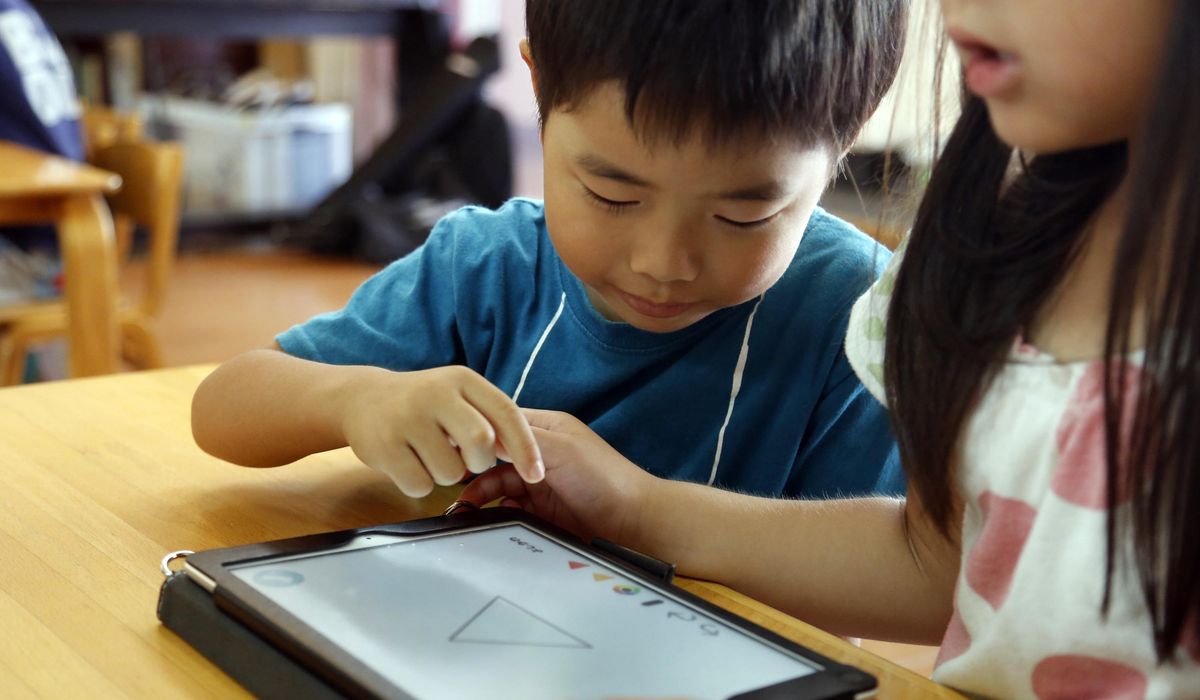


Toddlers who watch videos on digital tablets are more likely to pitch a fit at bedtime as their screen time increases, a study has found.
Six researchers surveyed 315 parents of preschool-aged children from Nova Scotia, Canada, annually between 2020 and 2022. They followed the children’s viewing of iPads, tablets, LeapPads and iTouch devices at ages 3½, 4½ and 5½.
The study found that parents exposing toddlers to an extra 73.2 minutes a day of videos at age 3½ contributed to a 22% increase in anger and frustration during daily child-care routines.
Its authors said the results suggest early childhood tablet use could make it harder for children to control their emotions as they age.
“For example, this can be reflected by the child acting frustrated or angry or having a tantrum when prevented from doing something s/he wants to do, when asked to do something like pick up their toys, or when asked to go to bed,” said Caroline Fitzpatrick, a co-author of the study and developmental psychologist at the Université de Sherbrooke in Quebec.
Ms. Fitzpatrick’s team published the findings Monday in JAMA Pediatrics.
They measured toddler frustration and anger by asking parents to indicate on a 0-7 scale how much they agreed with a series of statements. Higher numbers indicated longer and more intense tantrums.
One of the statements: “Child gets angry when told s/he has to go to bed, and my child has temper tantrums when s/he doesn’t get what s/he wants.”
Most of the content came from programs and shows on YouTube, Netflix, Disney+ and other video streaming services.
The findings come as public health officials have warned of a growing youth mental health crisis fueled by increases in screen time during the pandemic.
A growing body of research has suggested that digital screen addiction can start as early as toddlerhood, interrupting healthy mental and emotional development.
Beyond video chats, the American Academy of Pediatrics recommends no screen time for children under 2 years old. It suggests no more than one hour a day of high-quality programming for children ages 2 to 5.
According to the study published Monday, the time toddlers spent on mobile devices increased from 5 minutes a day in 2020 to 55 minutes a day in 2022 as families relied more on screens during the pandemic.
Ms. Fitzpatrick said most children are exposed to screens “well before” age 3½. She urged parents to avoid using tablets to soothe their children’s feelings.
“We recommend that parents closely monitor tablet use by young children and limit use by younger preschool-aged children,” Ms. Fitzpatrick added in an email.
• Sean Salai can be reached at ssalai@washingtontimes.com.
